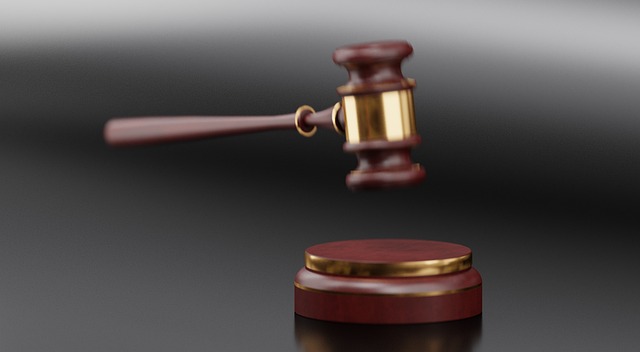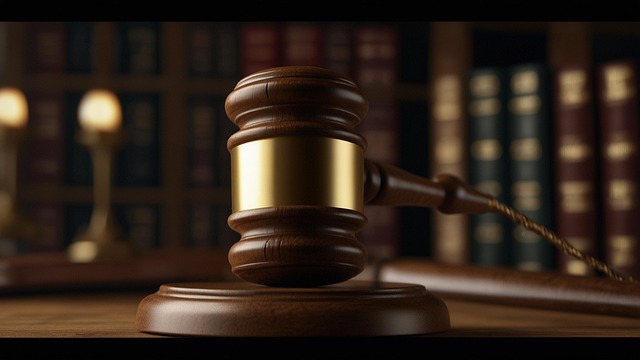Corporate crime investigations, focusing on fraud, embezzlement, and breaches of fiduciary duty, heavily rely on securities regulations like those enforced by the SEC. These regulations play a pivotal role in deterring misconduct, maintaining market integrity, protecting investors, and promoting transparency. By setting strict compliance standards, they shape litigation outcomes through strategic navigation of legal frameworks, fact interpretation, public perception, and accountability measures, ultimately favoring victims and justice in white-collar crime cases. Understanding these regulations' impact is crucial for effective enforcement and improved corporate governance.
Corporate Crime Investigations delve into complex financial misdeeds within organizations. This comprehensive overview explores key aspects, including the role of securities regulations in prevention and their profound impact on litigation strategies. We analyze effective prosecution and defense approaches, while case studies highlight how regulatory frameworks shape corporate accountability. Understanding these dynamics is essential for navigating legal complexities and ensuring justice in the business world, with a particular focus on how securities regulations influence litigation outcomes.
- Understanding Corporate Crime Investigations: A Comprehensive Overview
- The Role of Securities Regulations in Preventing Financial Misdeeds
- Impact on Litigation: Strategies for Effective Prosecution and Defense
- Case Studies: How Regulatory Frameworks Shape Corporate Accountability
Understanding Corporate Crime Investigations: A Comprehensive Overview

Corporate Crime Investigations delve into complex networks of financial transactions, legal frameworks, and corporate governance to unearth illegal activities. These high-stakes cases often involve fraud, embezzlement, and breach of fiduciary duty, with significant implications for corporations, their leaders, and even philanthropic and political communities. Understanding the intricate web of securities regulations is crucial as they play a pivotal role in shaping litigation outcomes.
Regulatory bodies, such as the Securities and Exchange Commission (SEC) in the United States, enforce laws that govern public companies’ financial disclosures, insider trading, and anti-fraud measures. Compliance with these regulations acts as a deterrent, but when violations occur, investigations become essential to restore integrity. The outcome of such investigations affects not only corporate and individual clients but also shapes public trust in markets, emphasizing the need for meticulous scrutiny and robust legal frameworks.
The Role of Securities Regulations in Preventing Financial Misdeeds

Securities regulations play a pivotal role in preventing financial misdeeds and ensuring fair practices within corporations. These regulations are designed to maintain integrity in the market, safeguard investors, and promote transparency. By setting clear guidelines and standards, they act as a robust deterrent against corporate crimes such as fraud, insider trading, and money laundering. An unprecedented track record of successful prosecutions across the country attests to their effectiveness.
In terms of impact on litigation outcomes, securities regulations provide a comprehensive framework that guides investigations and legal proceedings. They outline specific requirements for financial reporting, disclosure, and compliance, enabling authorities to identify potential violations more efficiently. This structured approach not only facilitates faster resolutions but also ensures that respective business entities are held accountable for their actions, thereby fostering a culture of ethical conduct and enhanced corporate governance.
Impact on Litigation: Strategies for Effective Prosecution and Defense

The impact of corporate crime investigations extends far beyond the immediate consequences for the offending organizations. Securities regulations play a pivotal role in shaping the dynamics of litigation that arise from such incidents. These regulations are designed to protect investors, maintain market integrity, and ensure transparency, all of which have profound effects on both prosecution and defense strategies.
Effective white collar defense strategies often navigate the complexities of these regulations throughout all stages of the investigative and enforcement process. Understanding how securities laws interpret and apply specific facts is crucial for building a robust defense. Additionally, public perception and the scrutiny of philanthropic and political communities can significantly influence litigation outcomes, further underscoring the importance of strategic navigation within this legal framework.
Case Studies: How Regulatory Frameworks Shape Corporate Accountability

Case studies reveal that regulatory frameworks play a pivotal role in shaping corporate accountability and influencing litigation outcomes, particularly in white-collar crime cases. Securities regulations, for instance, can significantly impact how companies are held responsible for their actions. When strict compliance standards are enforced, it becomes harder for corporations to evade liability through technical loopholes. This discourages fraudulent activities and promotes a culture of transparency.
These regulations often empower regulatory bodies to initiate legal proceedings, which can lead to substantial penalties and even criminal charges for top-level executives if they are found guilty. The threat of such outcomes acts as a deterrent, encouraging companies to implement robust internal controls and compliance programs. Ultimately, this translates into more favorable litigation outcomes for victims, ensuring they receive compensation, and fostering a sense of justice in jury trials involving corporate misconduct.
Corporate crime investigations are complex, multi-faceted processes that significantly impact litigation outcomes. As illustrated through case studies, robust securities regulations serve as powerful tools in fostering corporate accountability and preventing financial misdeeds. By understanding the intricate interplay between regulatory frameworks and legal proceedings, practitioners can develop effective strategies for both prosecution and defense, ultimately shaping fair and just outcomes. How securities regulations impact litigation outcomes is undeniable, underscoring the critical need for continuous evaluation and enhancement of these regulatory measures in the ever-evolving corporate landscape.






